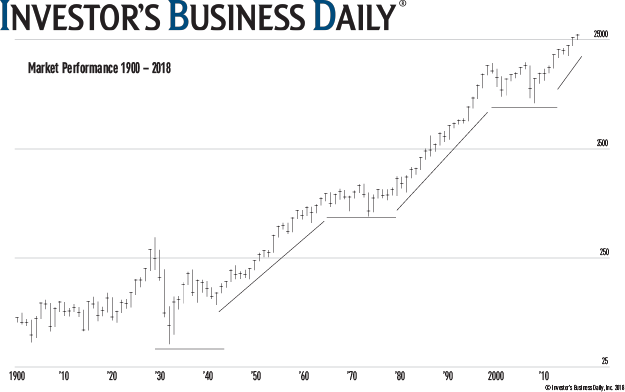You can see that going back more than a century, there are long, 15 to 20 year cycles. Whether it's the Roaring 20s, Post World War II, 80s and 90s Dot com run-up, there are always times of down or sideways action…it’s just part of the longer cycle. That means that as uncertain and scary events occur, you need to remind yourself, that they are simply part of being an investor.
And for you geeks out there, we even talk about the YIELD CURVE, which is just a way to compare short-term interest rates (the federal-funds rate) and long-term interest rates (the 10-year U.S. Treasury bond). It also happens to be one of those weird market indicators that can presage recessions and stock bear markets.
You can go here for more information on Investor's Business Daily.
Have a money question? Email me here.
Connect with me at these places for all my content:
https://twitter.com/jillonmoney
https://www.facebook.com/JillonMoney
https://www.instagram.com/jillonmoney/
https://www.linkedin.com/in/jillonmoney/
http://www.stitcher.com/podcast/jill-...
https://apple.co/2pmVi50
"Jill on Money" theme music is by Joel Goodman, www.joelgoodman.com.
![Jill on Money [ Archive]](http://images.squarespace-cdn.com/content/v1/59efbd48d7bdce7ee2a7d0c4/1510342916024-TI455WZNZ88VUH2XYCA6/JOM+Blue+and+White.png?format=1500w)







